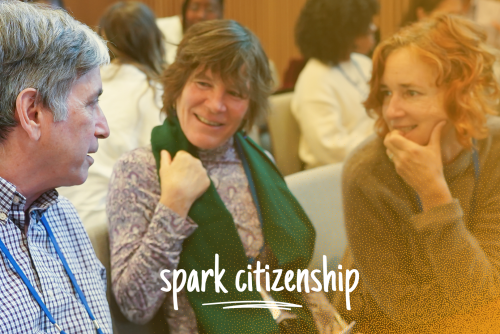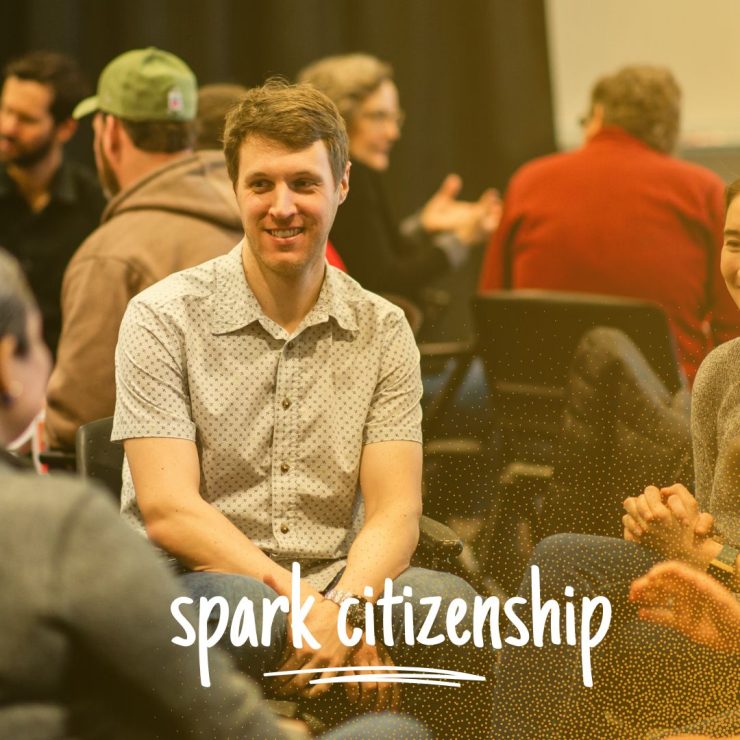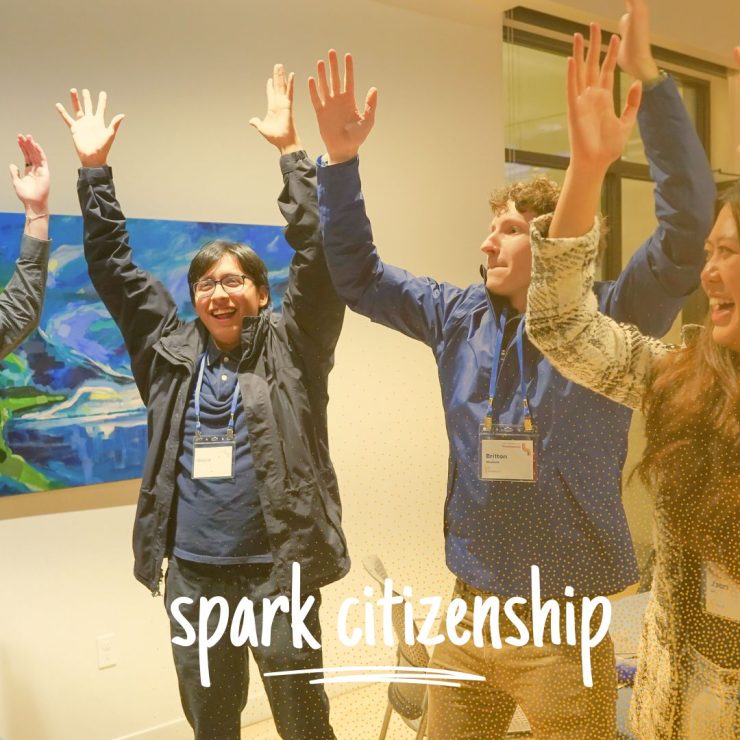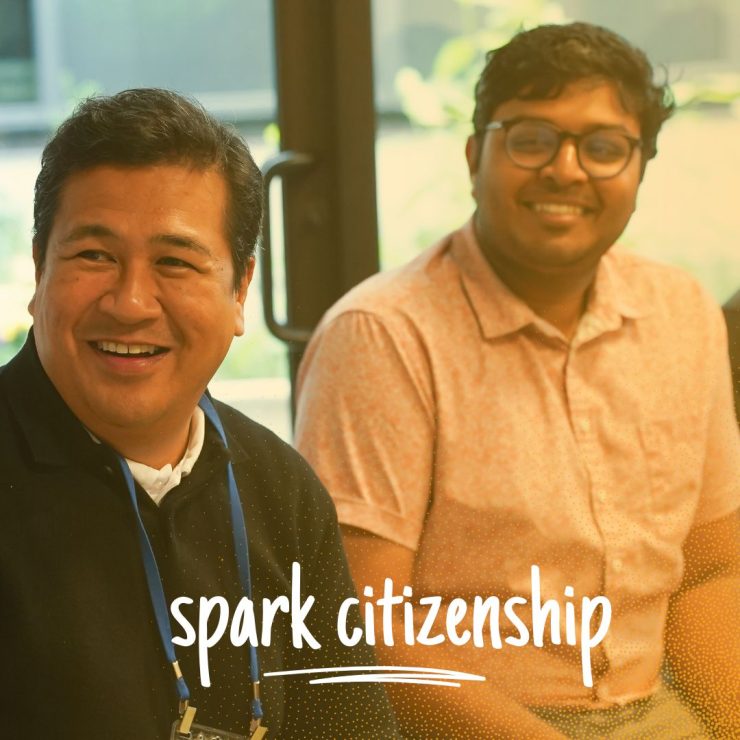There’s a glaring spotlight on how Americans are different from one another these days. It’s so easy to separate and tribalize ourselves based on our values and viewpoints. But to an extent, democracy needs diversity in perspective in order to function. So we’re faced with a crucial question: how can we navigate these differences while still being the United States — and how can we ensure those differences don’t harm others? Or more simply put, how shall we be together?
To answer this question and find our way through this time of immense polarization, we need to understand each other better. But before we can do that, we must understand ourselves first.
This isn’t always easy: it’s hard to hold up the mirror and look at our assumptions and judgements. But being curious about ourselves — how we’ve each built our own opinions, values, and perspectives — allows us to better understand how others have arrived at theirs. Since the practice of citizenship requires interaction with those we’re different from, we must understand how we relate to others, and how they relate to us. Ultimately, if citizenship is about actively exploring the question, how shall we be together, we must begin with knowing how we each are part of that “we.”
SPARK CITIZENSHIP FOCUS
Curiosity and Connection
This is the fourth step to Spark Citizenship — a year-long project to equip more Americans (just like you!) as sparks of civic activity. You’ll dig into a timely theme and receive practical resources, inspiring examples, and grounded encouragement to not only embrace this civic mindset in yourself but also spark it in others. It’s an activating, community-building, and hope-filled antidote to the polarizing pull of the 2024 election.
Looking for more? Start with joining and inviting →
Your task —
Build habits of curiosity and connection — first with yourself, and then with others. Get curious about how you see the world. How did my opinions form? What do I pay attention to, and what am I missing? Where might my assumptions and judgements prevent me from connecting with others? Invite this kind of curiosity with those around you, whether through casual conversation or through an organization whose mission is to nurture this kind of activity. Create a culture — no matter how small — where this practice of reflection and connection becomes the norm.
Resource library —
We’ll be adding new ideas, tips, conversation prompts, inspiring stories, and other content to help you practice the civic skill of developing and practicing this civic skill.
Develop your skills to cultivate a culture of connection

A Call to Connection: Rediscovering the Transformative Power of Relationships
The Einhorn Collaborative developed “A Call to Connection” in an effort to help leaders in multiple sectors better understand how vital human connection is to effectively addressing the challenges of our time. Their findings are echoed and enriched by wisdom teachings and cultural practices going back thousands of years.
“The complexity and severity of the challenges we’re facing seem overwhelming, and we’ll struggle to solve them if we can’t see, hear, and understand each other first. When we bring empathy, mutuality, vulnerability, and curiosity to our interactions, we feel seen, validated, and understood. We’re able to appreciate what makes us distinctive and what we have in common. Relationships become a source of sustenance, and differences become our strength.” Continue reading →

Bridge Builders close the psychological gaps between Us and Them, encouraging others — and them selves — to recognize that their differences don’t need to define or divide them and that they can disagree with someone without dehumanizing them. This playbook from the Greater Good Science Center helps you be a bridge builder.
“We tend to fall into ruts, becoming complacent about how we see the world and other people. If we’re always doing and reading what seems familiar, and hanging around people who make us feel comfortable, then prejudices and stereotypes are more likely to fester. But breaking out of your comfort zone can help you to grow and expand your personal identity—and perhaps break down some social barriers.” Continue reading →
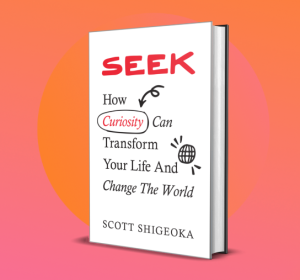 SEEK: How Curiosity Can Transform Your Life and Change The World
SEEK: How Curiosity Can Transform Your Life and Change The World
Did you know that curiosity is your superpower? Maximize your capacity for connection, healing, and personal growth with this “timely bridge for our divided world.”
SEEK will show you how to practice deep curiosity through my signature four-phase “DIVE” model—Detach, Intend, Value, Embrace—so you can build the courage to be transformed by the people, places, and experiences you encounter.
Looking for more? Make sure you’re following us on Instagram and LinkedIn.
